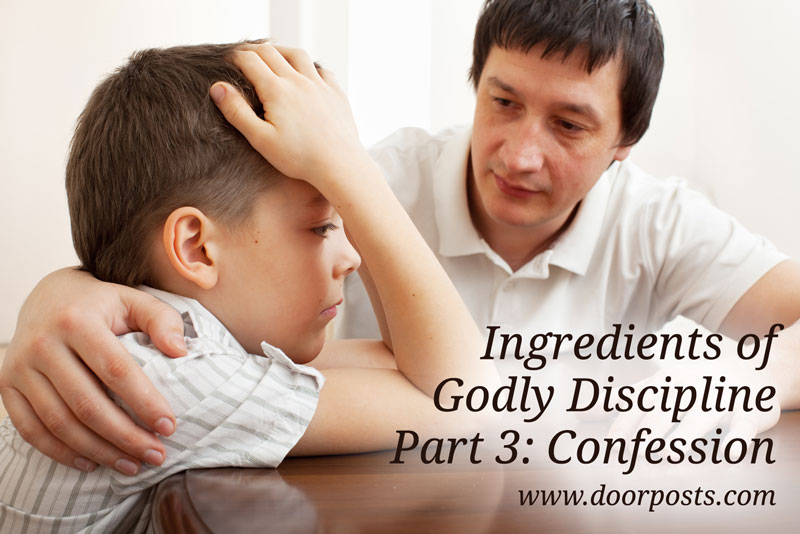
If we give our children effective, Bible-based instruction, they will come to see how they have sinned. The next step is to encourage them to admit or confess their sin to us and to God. Even 3-year-old can say “I was wrong for disobeying”.
Here’s why it’s important for our children to learn to confess their sin:
1. Our goal isn’t to merely change our children’s behavior. We’re teaching our children about their sinfulness and how to deal with it. We do that by helping them see how they sinned, take responsibility, and ask for forgiveness from us and from God.
2. Confession helps prevent bitterness. Getting disciplined when you don’t know why is ineffective. Being disciplined when you think it’s unfair is frustrating. When our children see and admit their sin, they will be more receptive to our shepherding and guidance.
3. Sin is a burden to carry around. Un-confessed sin hurts our children’s fellowship with God and their relationships with others. It affects their moods and behavior too.
“There is no soundness in my flesh because of your indignation; there is no health in my bones because of my sin. For my iniquities have gone over my head; like a heavy burden, they are too heavy for me.” (Psalm 38:3-4)
“For evils have encompassed me beyond number; my iniquities have overtaken me, and I cannot see; they are more than the hairs of my head;my heart fails me.” (Psalm 40:12)
4. Confessing sin leads to forgiveness and healing. The solution is to admit our sin and seek forgiveness from each other and from God. Confession is the turning point towards restoration.
“If we confess our sins, he is faithful and just to forgive us our sins and to cleanse us from all unrighteousness.” (1 John 1:9)
“I acknowledged my sin to you, and I did not cover my iniquity; I said, “I will confess my transgressions to the Lord,” and you forgave the iniquity of my sin. Selah” (Psalm 32:5)
“Whoever conceals his transgressions will not prosper,but he who confesses and forsakes them will obtain mercy.” (Proverbs 28:1)
“Therefore, confess your sins to one another and pray for one another, that you may be healed. The prayer of a righteous person has great power as it is working.” (James 5:16)
So how can we help our children confess their sin?
In discipline, ask “what did you do?” not “why did you do that?” (for some reason I always want to ask why, but it rarely helps). “What” helps our children take responsibility for their behavior. “Why” is an invitation to think up an excuse.
Consider a lighter consequence for the child who confesses sin on his own initiative.
Help him apologize to anyone he may have wronged, including siblings, you, and God.
When they apologize, it’s better to say “I was wrong” than “I’m sorry”. He could be sorry because he was caught, or sorry that the other person was offended. Or maybe he isn’t really sorry at all, but he says it because you tell him to. Admitting “I was wrong” is much more specific and helpful.
Finally, we can imitate our loving God who is ready and willing to forgive His children. Like the father of the prodigal son, may we have compassion on our children and eagerly restore them to fellowship, rejoicing over them when they confess and turn away from their sin.
This blog series expands on the six principles from Doorposts’ new chart, Ingredients of Godly Discipline.
